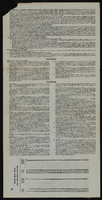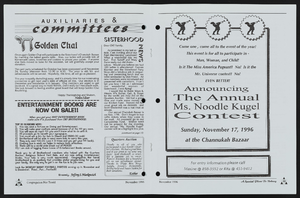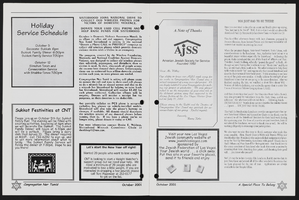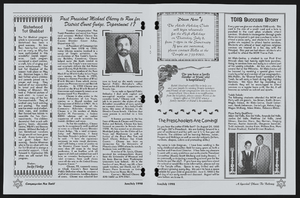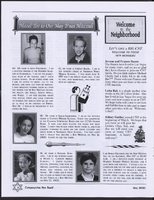Search the Special Collections and Archives Portal
Search Results
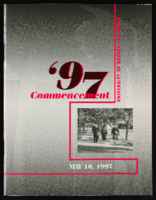
University of Nevada, Las Vegas (UNLV) 34th commencement program
Date
1997-05-10
Archival Collection
Description
Commencement program from University of Nevada, Las Vegas Commencement Programs and Graduation Lists (UA-00115).
Text
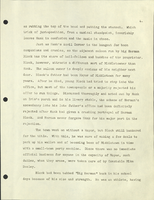
Correspondence and synopsis for Good Ole Hank, television series proposal, June 1955
Date
1955-06-22
Archival Collection
Description
The manuscript synopsis for the television series Good Ole Hank is accompanied by a letter from Harry Cohn of Columbia Pictures (Hollywood, Calif.), rejecting the proposal.
Text
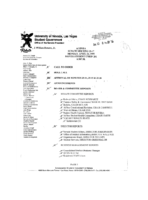
Meeting minutes for Consolidated Student Senate University of Nevada, Las Vegas, April 24, 1995
Date
1995-04-24
Archival Collection
Description
Includes meetin agenda and minutes, along with additional information about senate bylaws, reports, proposals, and the Mark Huff & The Inflatables Appearance Agreement.
Text

Preprint, Where I Stand: The Record of a Reckless Man, by Hank Greenspun with Alex Pelle, 1966
Date
1966
Archival Collection
Description
Book proof with annotations from editors in the margins.
Text
Pagination
Refine my results
Content Type
Creator or Contributor
Subject
Archival Collection
Digital Project
Resource Type
Year
Material Type
Place
Language
Records Classification

